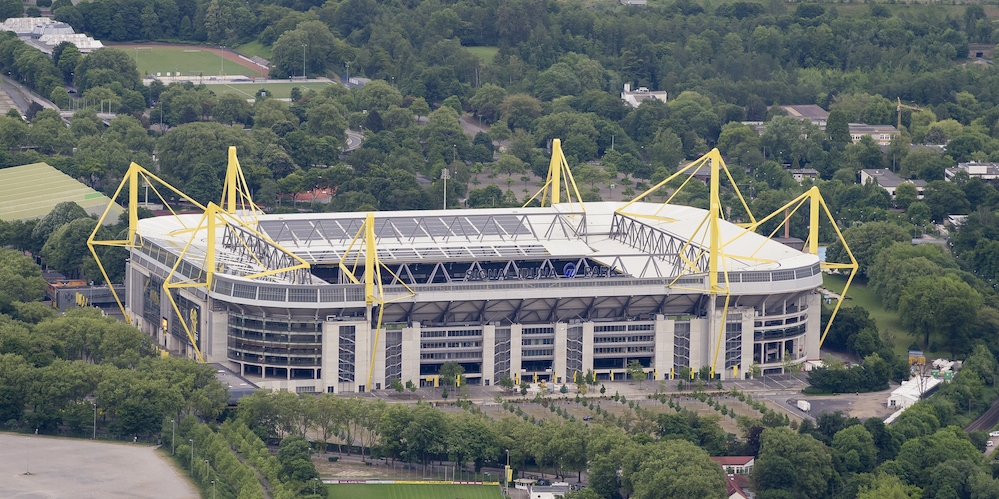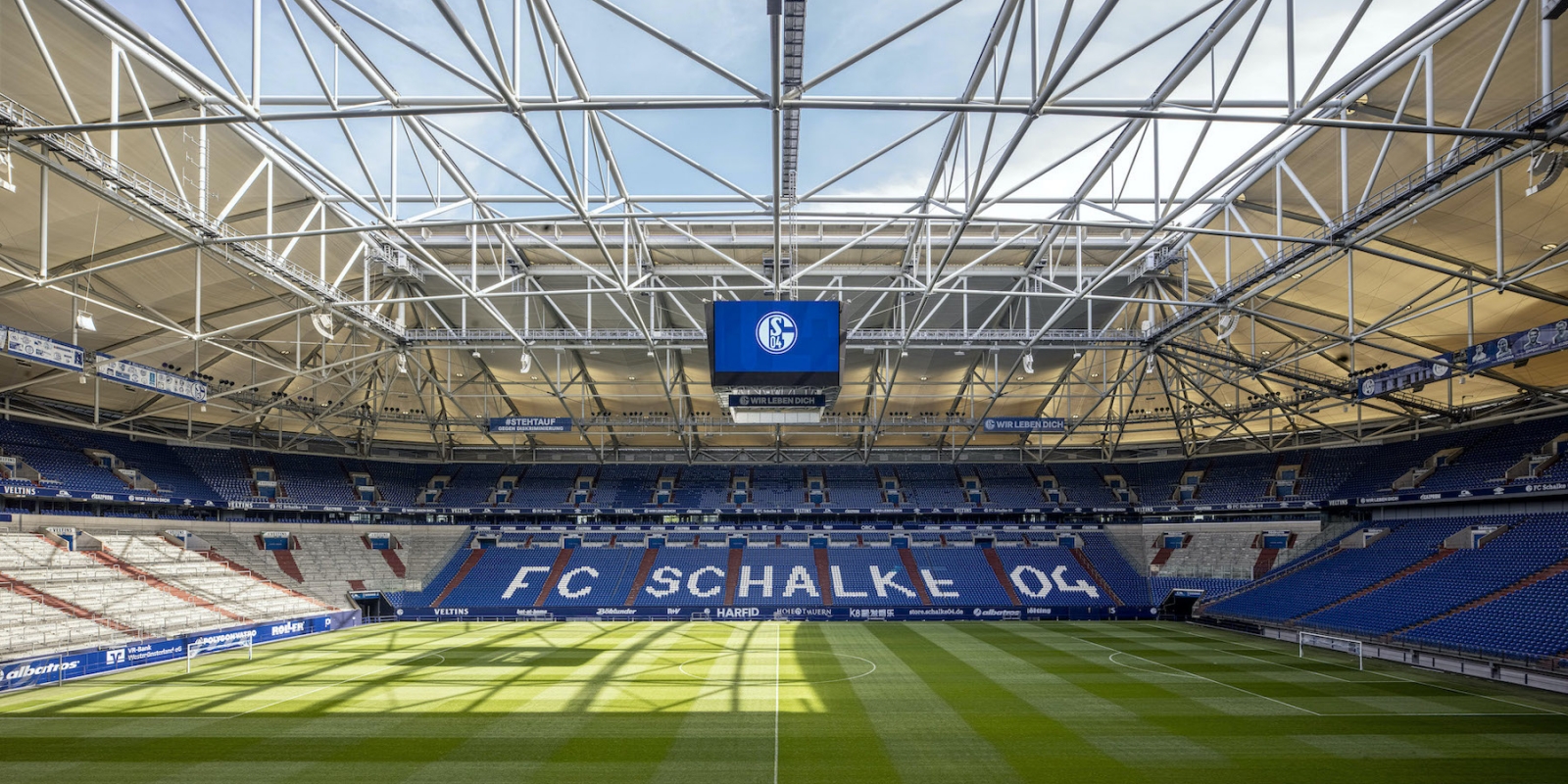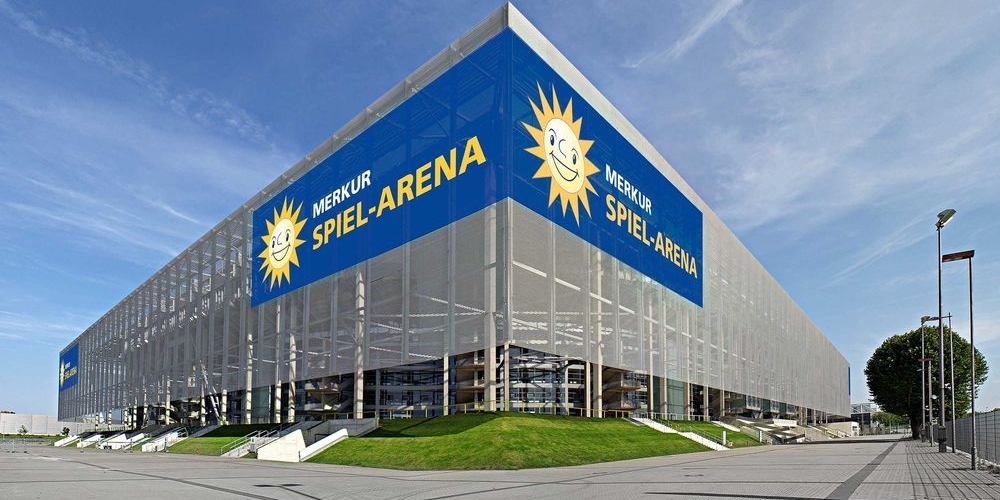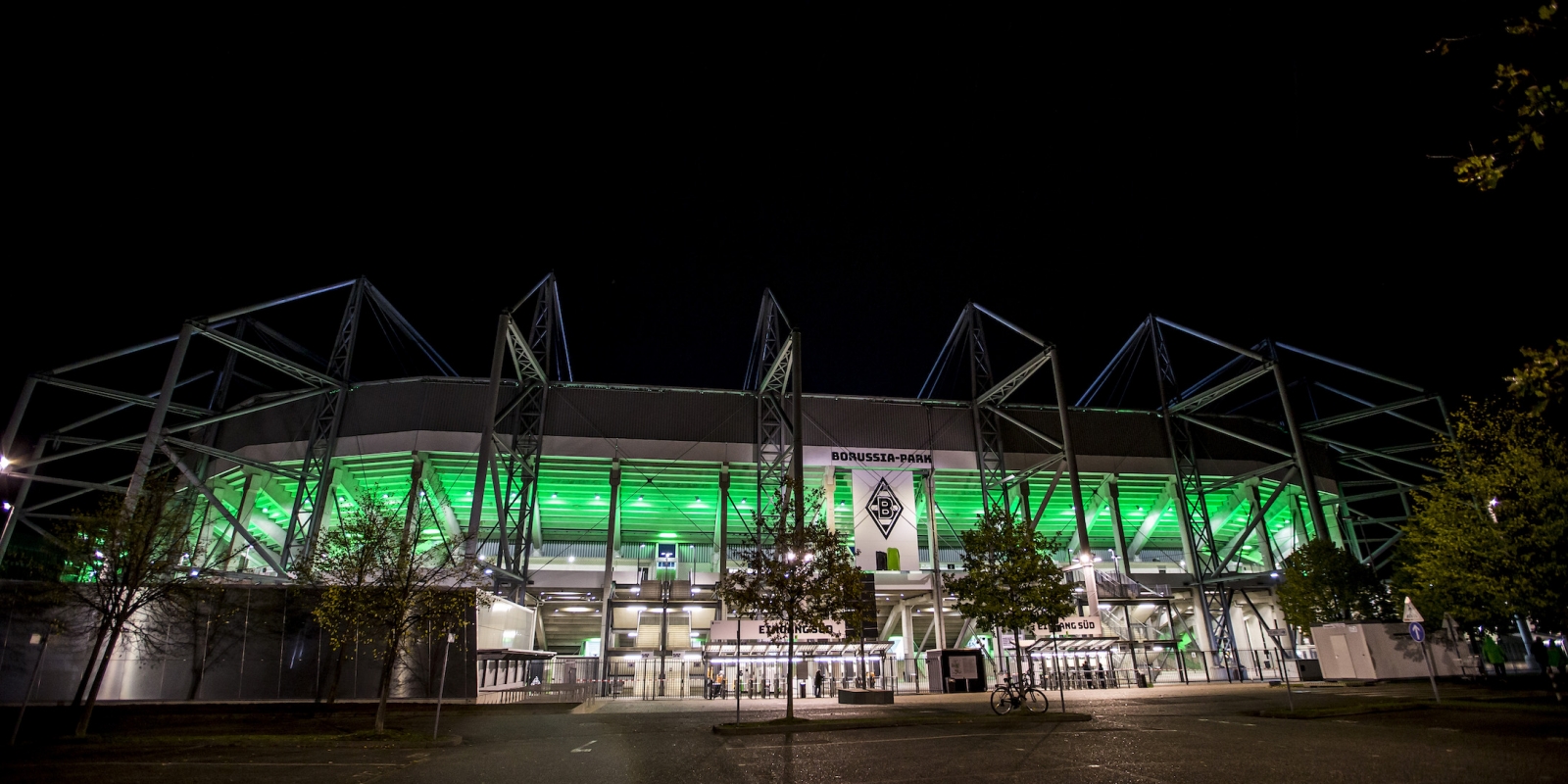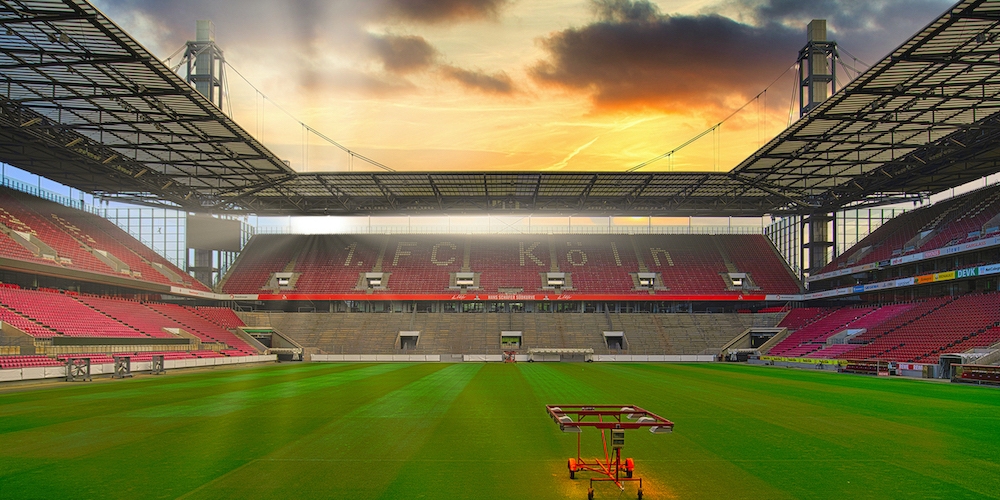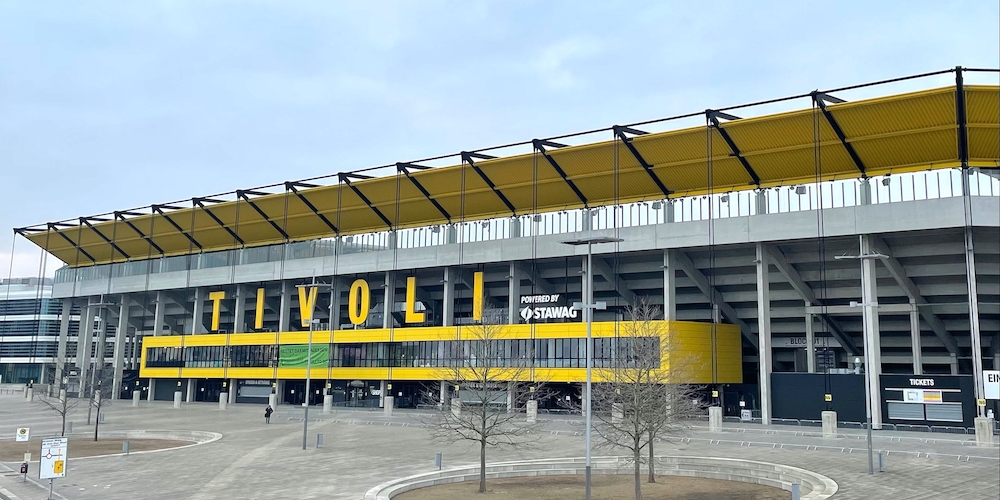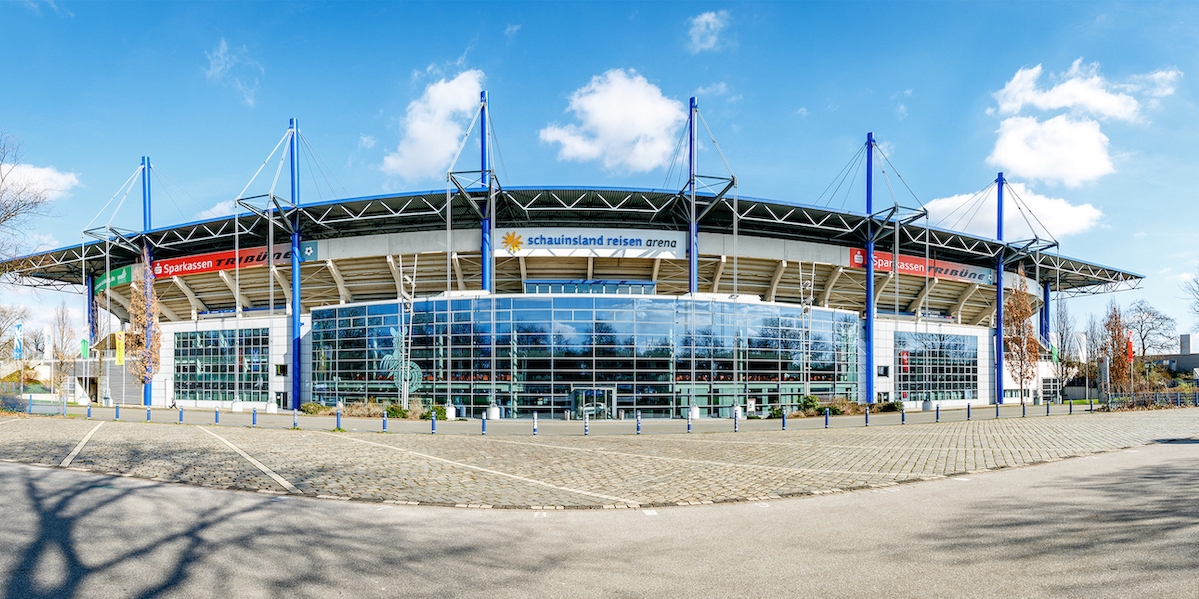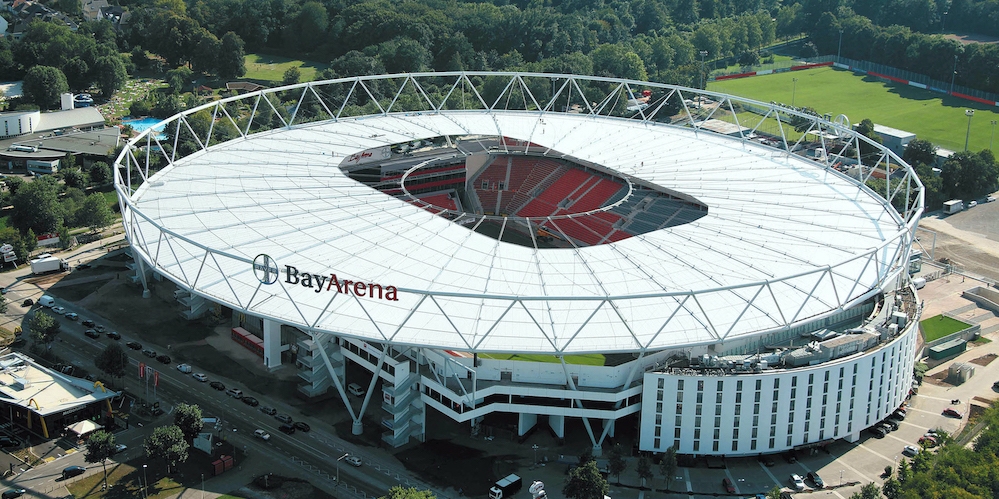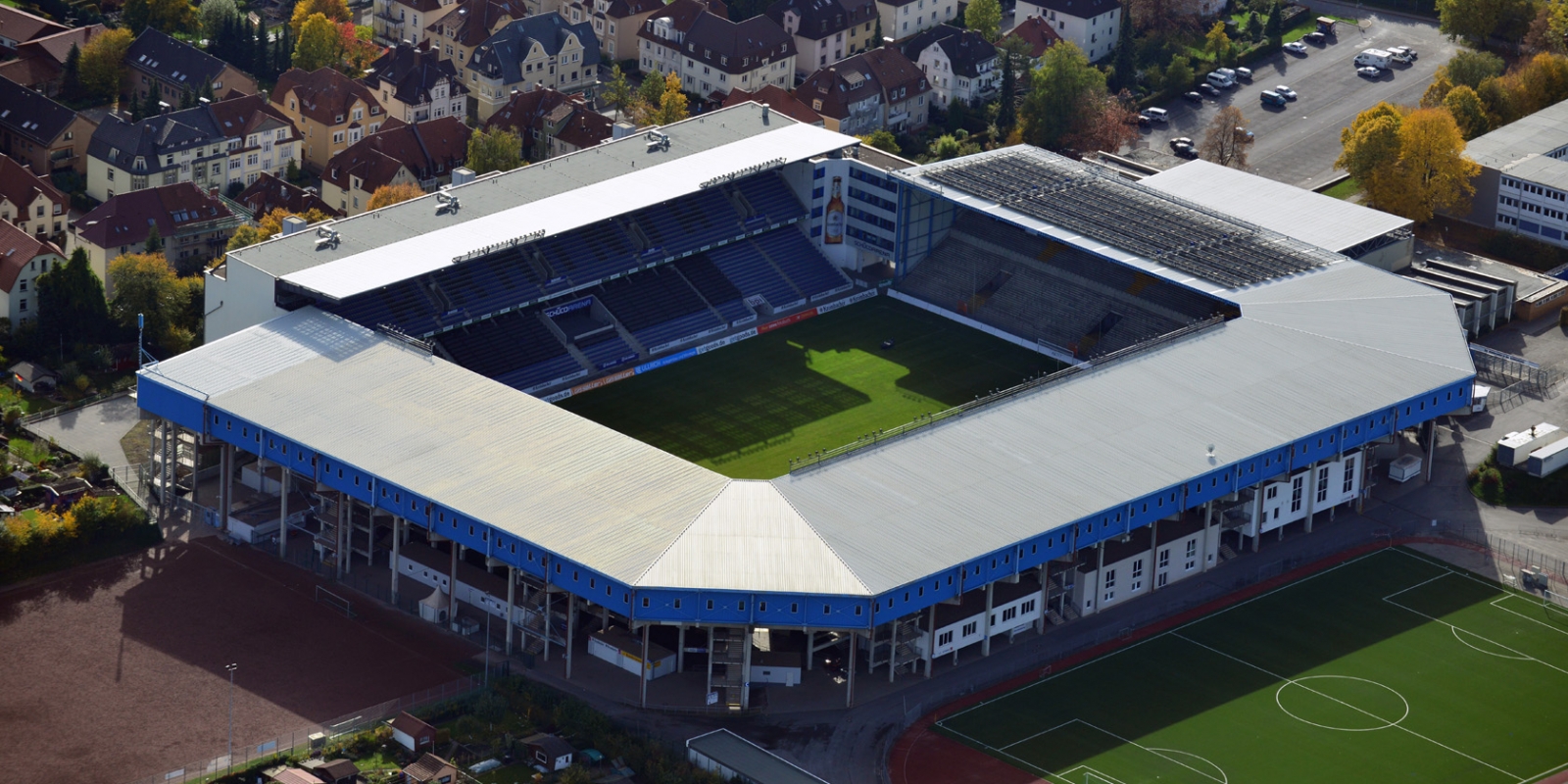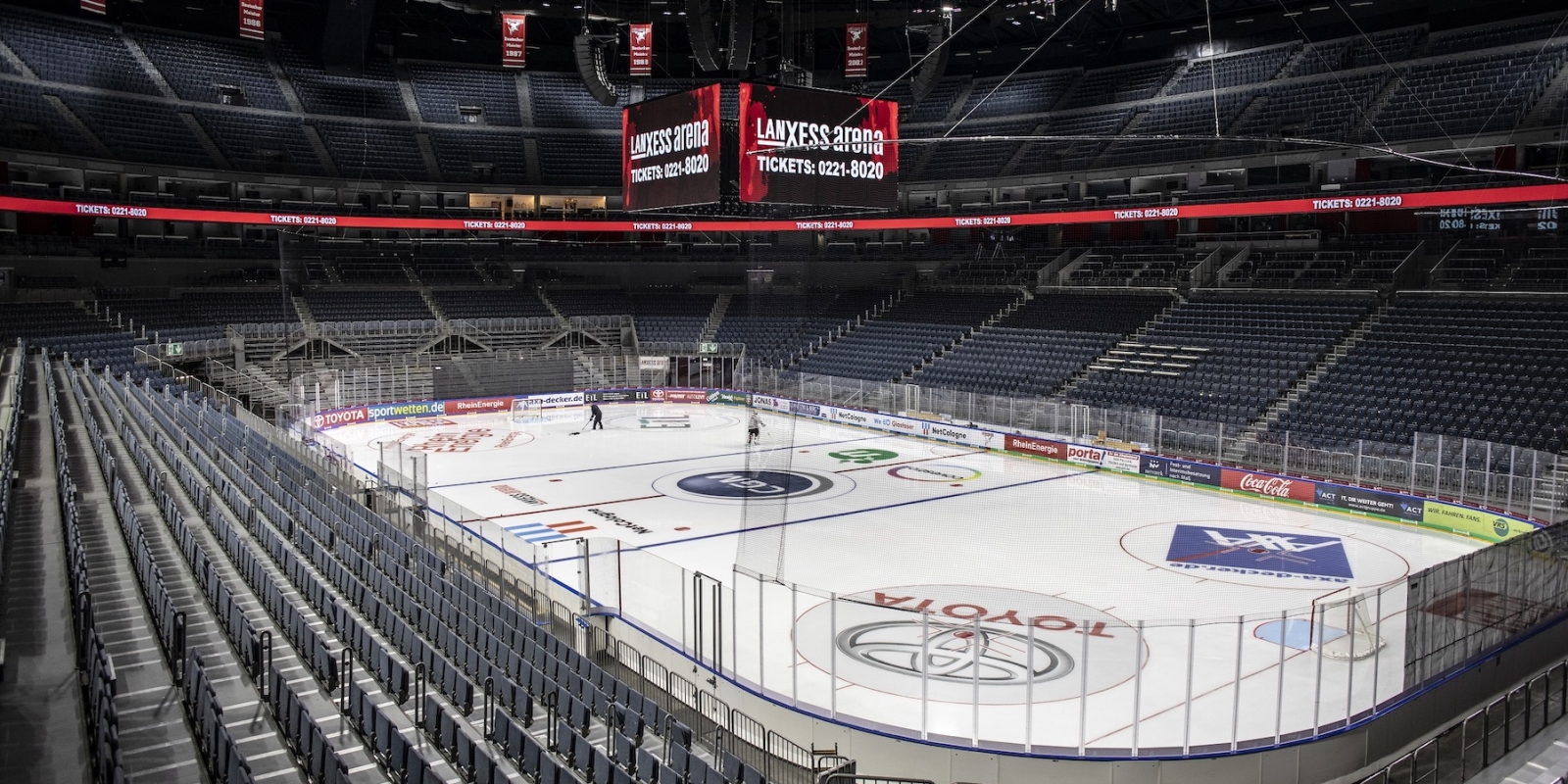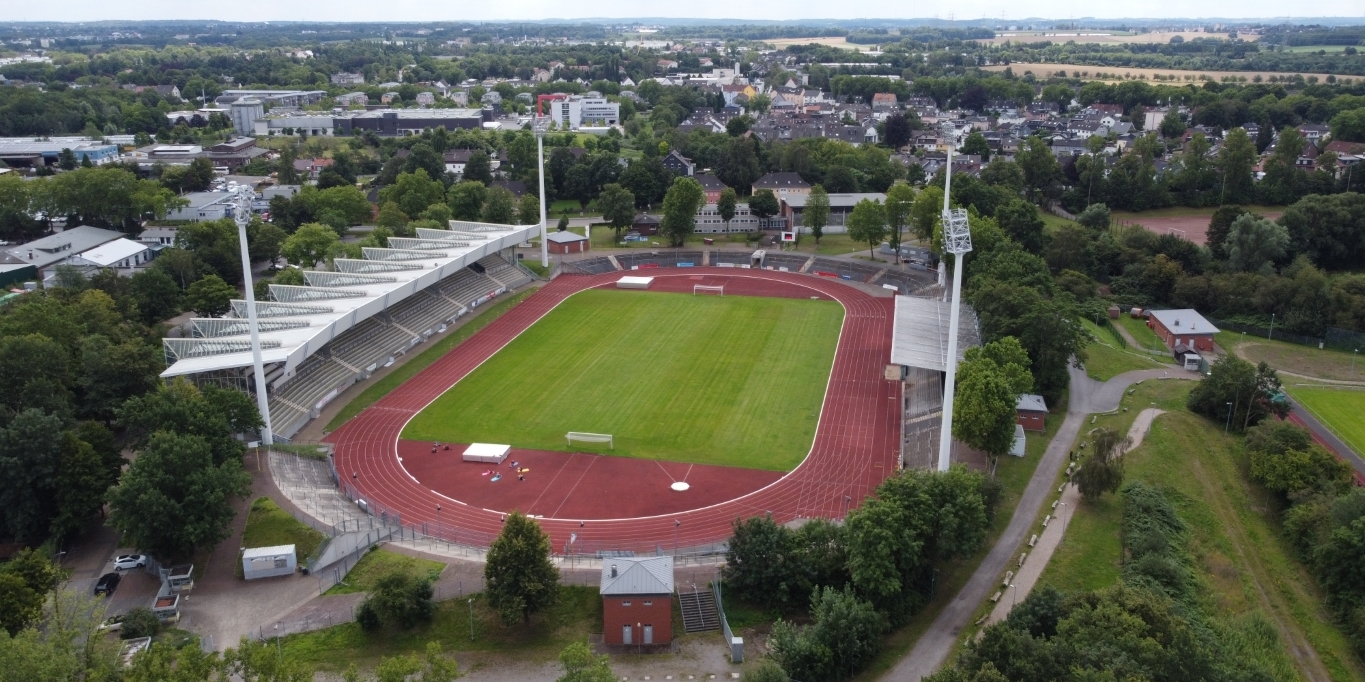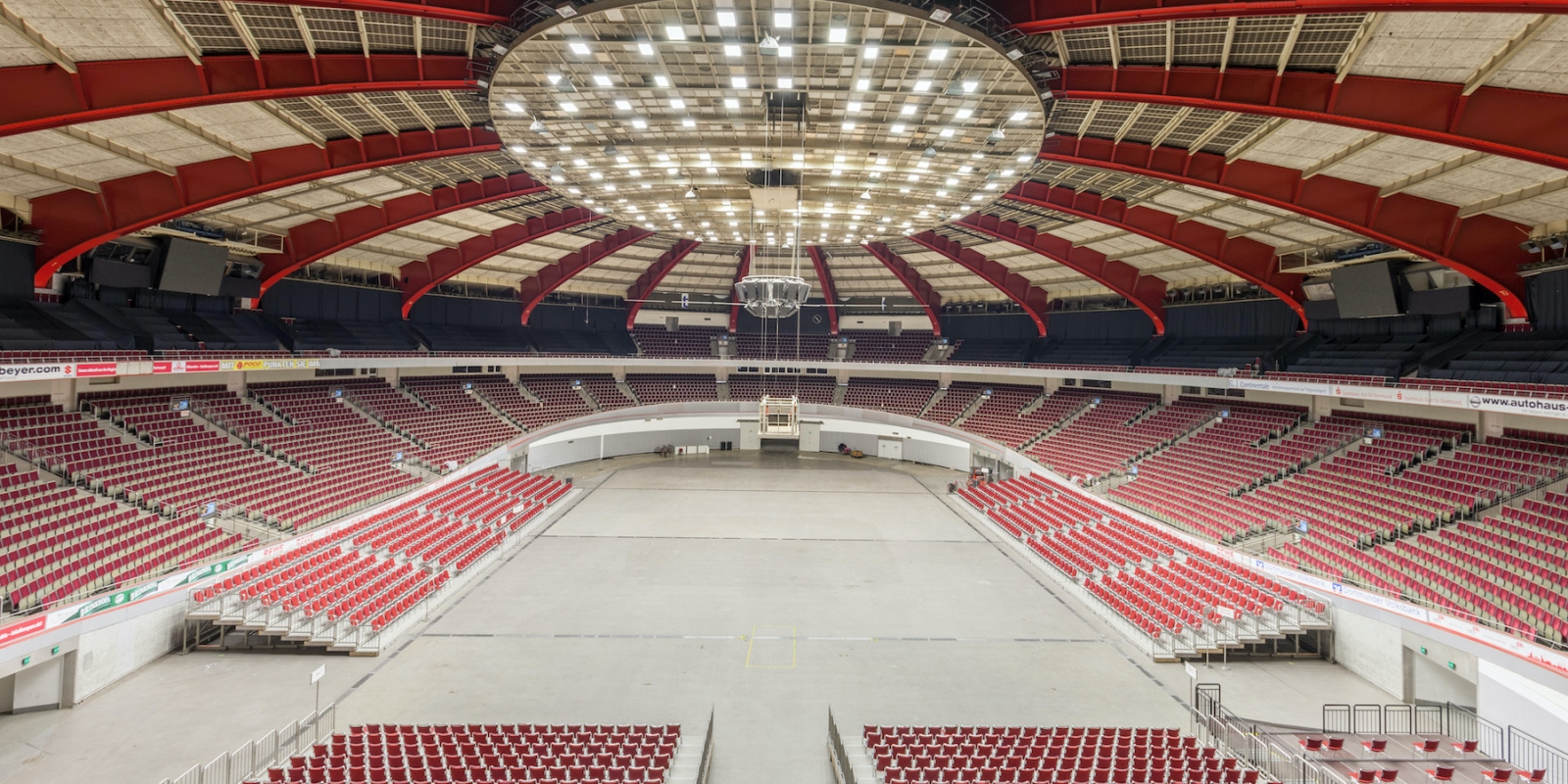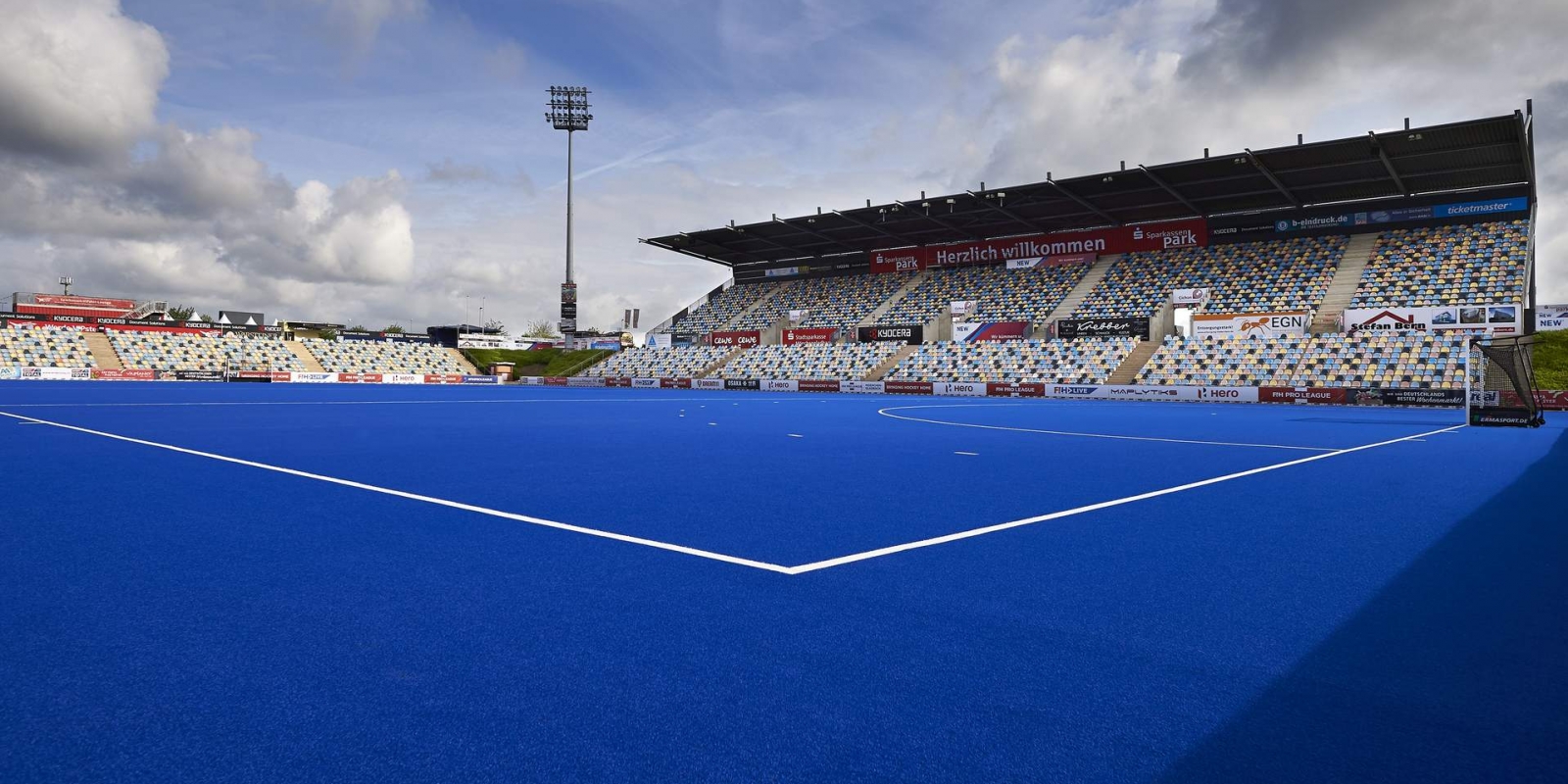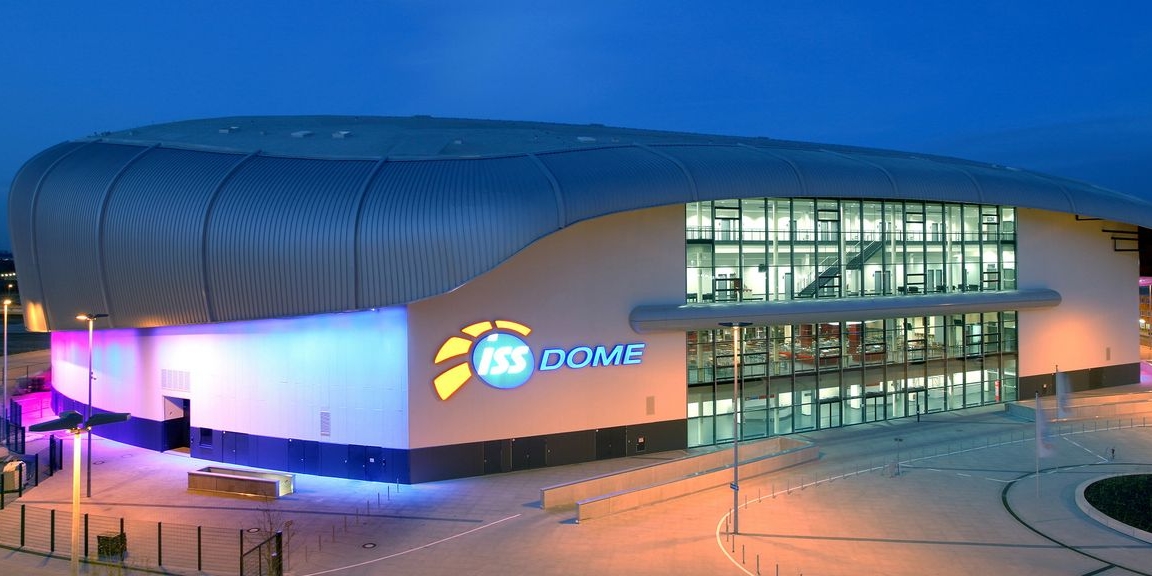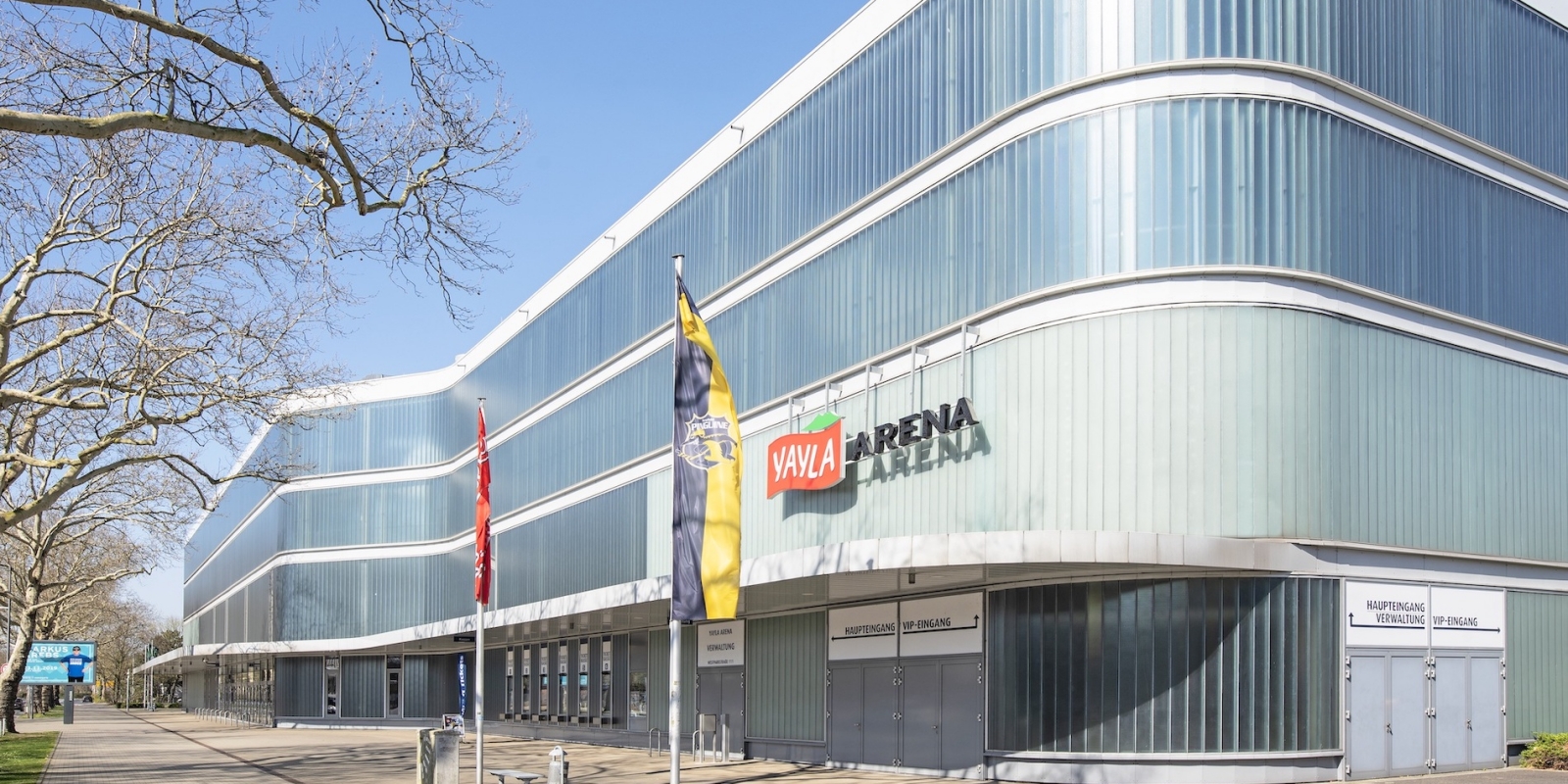The Veltins-Arena, aka Arena auf Schalke, has a capacity of 62,271 and is the second-largest stadium in the state of North Rhine-Westphalia, which calls itself Sportland.NRW. Located in Gelsenkirchen, the arena can seat 54,740 sports fans at international events. A special feature of this arena is that the football pitch can simply be rolled out to make way for other events.
The stadium on Rudi-Assauer-Platz has since 2001 been home to the “Königsblauen” (Royal Blues), the Bundesliga club FC Schalke 04. Tradition is avidly celebrated in the stands – especially when the Ruhr miners’ song “Steigerlied” rings out.
The Veltins-Arena is a UEFA Category 4 stadium and has frequently hosted international events. These include the Champions League Final in 2004 as well as several matches of the 2006 Football World Cup. In addition, the Veltins-Arena is also regularly the venue for the Biathlon World Team Challenge. In December 2019, German biathlon star Laura Dahlmeier ended her active sports career here in front of more than 45,000 spectators.
